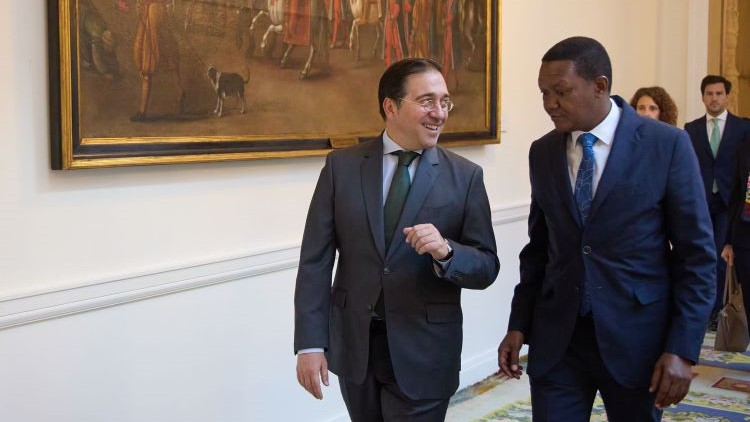Alberto Rubio
“Argentina has been for us an example of the defense of democratic memory and dignity”, said the former Prime Minister, José Luis Rodríguez Zapatero, during his speech at the debate ‘Argentina: 40 years of democracy (1983-2023)’, held yesterday at Casa de América.
Zapatero had a special reminder for the late Argentinean President Raúl Alfonsín, whose inauguration marks the country’s return to democracy after the years of the so-called ‘National Reorganization Process’, the civil-military dictatorship that was installed in Argentina from 1976 to 1983.
Addressing Ricardo Alfonsín, Argentine Ambassador to Spain and son of the former President, the former Spanish Prime Minister said, “your father returned ethics and memory to Argentine institutions, that is why we owe him so much that we feel proud and moved when we remember him”.
Zapatero also included in his speech an acknowledgement for the ‘Mothers of the Plaza de Mayo’ and ended by pointing out that “Argentina’s present is today, thanks to all of them, infinitely better than it was 40 years ago”.
The participants in the discussion, organized at Casa de América with the collaboration of the Embassy of Argentina, analyzed the evolution of democracy in the austral country from the political, social, economic and educational points of view.
In the first panel -‘The restoration of democracy in Argentina‘- the Secretary of State for Democratic Memory, Fernando Martínez López, and the professor of Political Theory at the Complutense University of Madrid, Javier Franze, analyzed the political evolution of the country in these 4 decades.
Franze explained that in these years there have been simultaneously “the greatest achievement and the greatest debt of the country“. The professor said that the greatest achievement was “excluding violence and death as a political resource“, while the debt continues to be “the great social inequality“, one of the causes of which, he said, “is a regressive tax system in which those who have the least continue to pay the most”. And he warned that “this difficulty must be taken seriously because if not, our greatest achievement will be threatened”.
The second panel -‘International Context in the Return to Democracy‘- included speakers such as the Secretary General of the OEI, Mariano Jabonero, and the Dean of the Faculty of Political Science of the Complutense University, Esther del Campo.
Enrique Iglesias, who was the first Ibero-American Secretary General, was in charge of closing the event.







